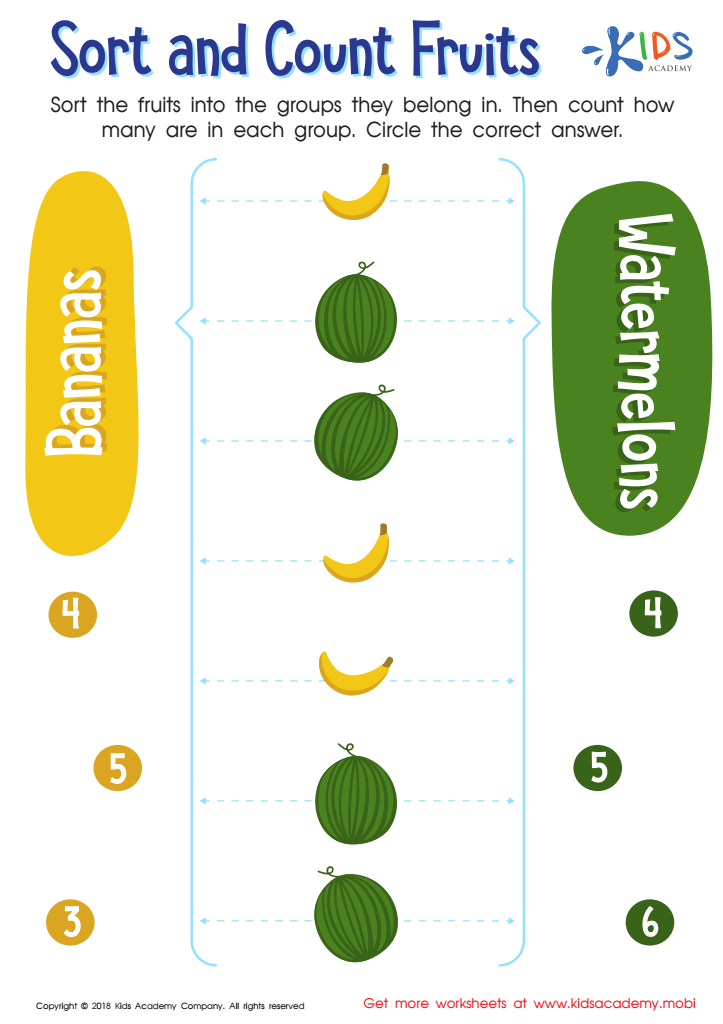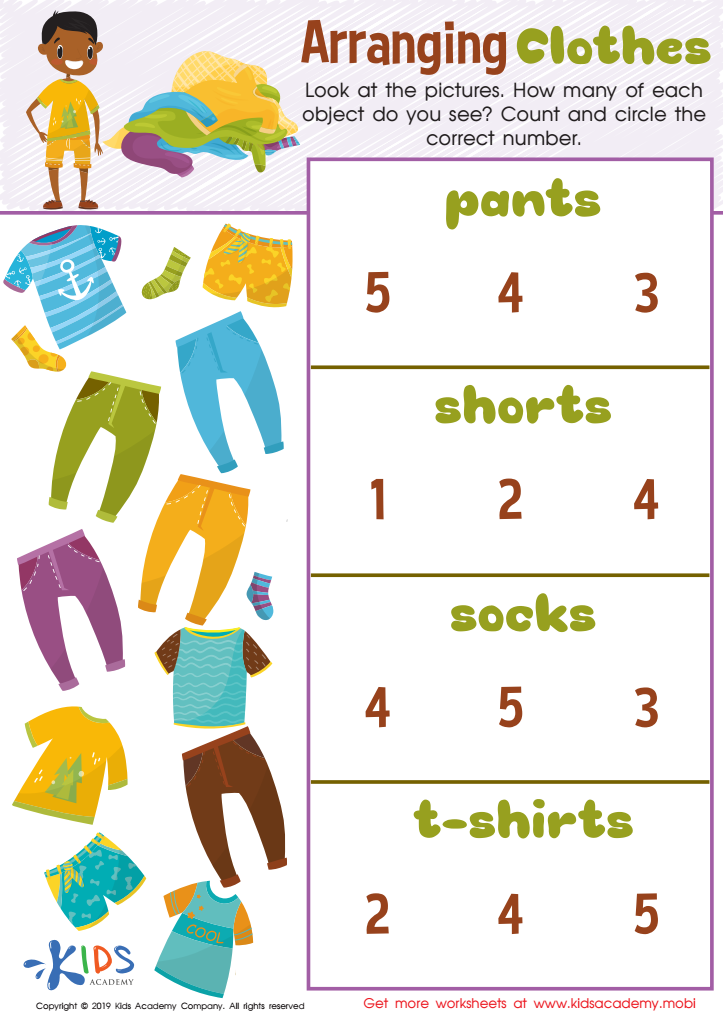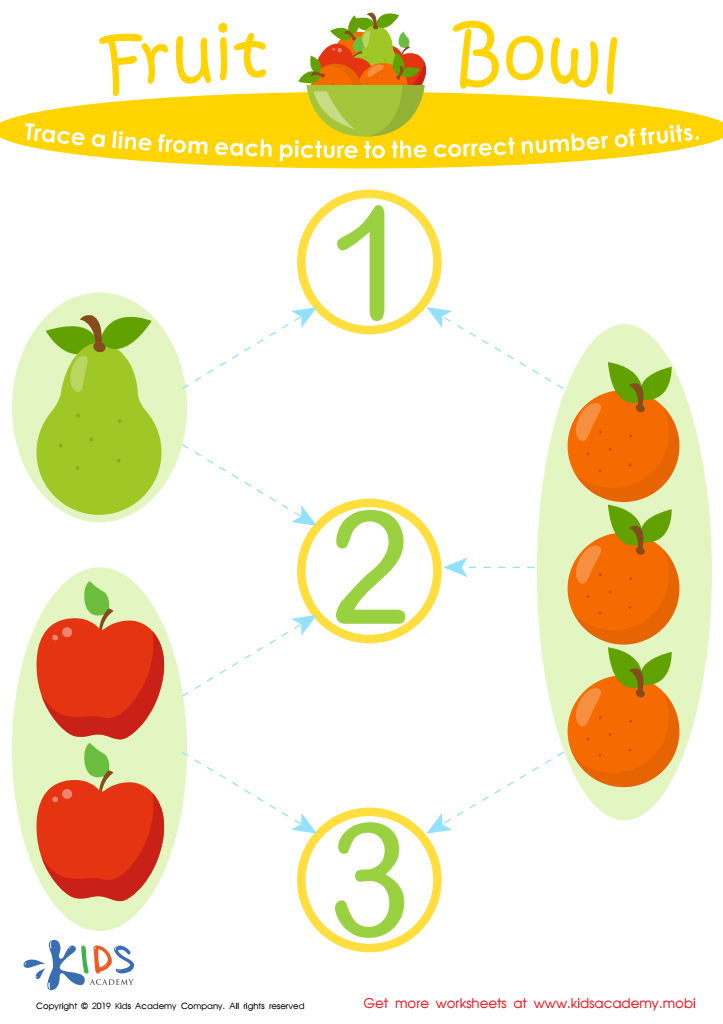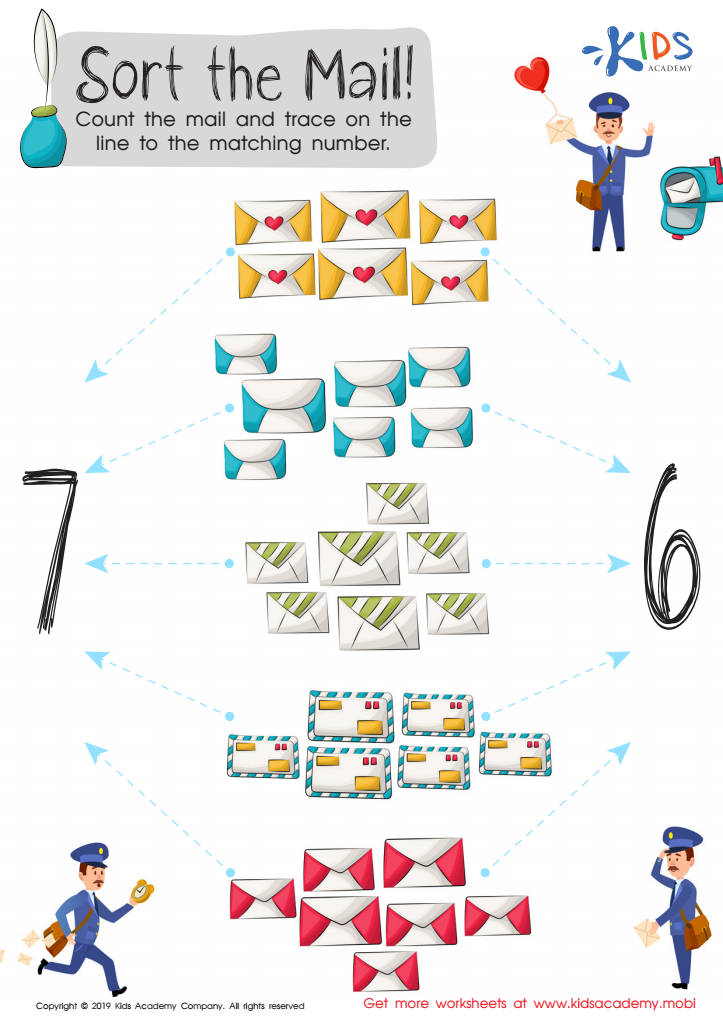Sorting skills Kindergarten Numbers Worksheets
5 filtered results
-
From - To
Discover our engaging "Sorting Skills Kindergarten Numbers Worksheets" designed to enhance your child's foundational math skills. These printable worksheets focus on teaching young learners how to categorize and organize numbers effectively. Through fun and interactive activities, children will develop critical sorting skills while boosting their early numeracy understanding. Our user-friendly format allows for easy accessibility, making learning enjoyable both at home and in the classroom. Foster a love for mathematics with visually appealing exercises that nurture creativity and problem-solving abilities. Equip your kindergartner with essential sorting skills that pave the way for future academic success in a playful and effective manner!


Sort and Count Fruits Worksheet


Sort and Count to the Moon Worksheet


Arranging Clothes Worksheet


Fruit Bowl Worksheet


Sort the Mail Worksheet
Sorting skills are a fundamental part of early childhood education and play a crucial role in the developmental journey of kindergarteners. Parents and teachers should prioritize the development of these skills for several reasons.
Firstly, sorting activities enhance critical thinking and cognitive development. When children sort objects by various attributes such as color, size, or shape, they learn to categorize information, a precursor to more complex mathematical concepts and problem-solving skills.
Secondly, sorting fosters important fine motor skills. Manipulating different items can help improve children’s coordination and dexterity as they handle and organize objects.
Moreover, sorting is closely linked to other mathematical concepts. Children who master basic sorting gain a solid understanding of patterns, sequences, and the foundations of number sense, preparing them for future math skills.
Lastly, sorting encourages social skills as children often engage in these activities collaboratively. Whether working with peers or guided by a teacher, they learn to share, communicate, and take turns.
By nurturing sorting skills in kindergarten, parents and teachers not only enhance children’s cognitive abilities but also provide essential tools for social and emotional development, creating a well-rounded foundation for lifelong learning.
 Assign to My Students
Assign to My Students



















